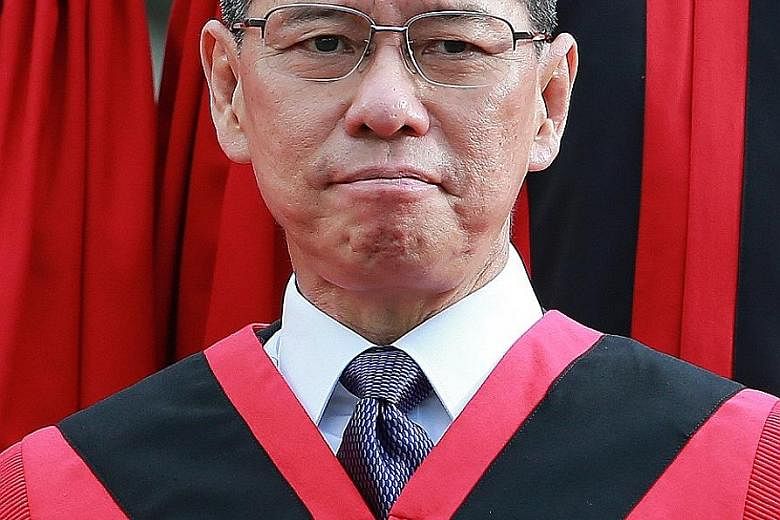Keep it short, keep it simple.
This guideline was on Justice Choo Han Teck's checklist for good writing after hearing fellow judges grouse about the quality of lawyers' written work, and of lawyers' complaints about what the judges said.
It was why he agreed to address the topic to underscore the importance of writing well, telling lawyers to skip hype from facts and be "sweet in your first letter but not sugary sweet".
"We write so much more nowadays because of the e-mail and mobile chats that we forget that our social writing habits should not show in our professional writings," he added at a Law Society legal writing seminar earlier this month.
The society has run the popular event on legal writing for the past few years. About 170 participants attended the seminar at the URA Centre in Maxwell Road this month.
Speaking not as a judge but more as a writer "with a lifelong fascination for the written word", Justice Choo, among other things, took aim at the way lawyers write letters of demand to put the other party on notice about issues that aggrieve their clients.
"Letters of demand are usually very terse and demanding. Some are full of vile and vitriolic," he said, reminding the audience that such a "letter before action" is meant to invite an amicable settlement "without going to war".
The judge, noting that communication is done mainly via e-mail, said writing must be done with the reader in mind.
"When you write an e-mail, remember this: The 'e' in e-mail stands for 'eternal evidence' - meaning although it is the first document seen by the opposing party, it is likely to start a long thread of e-mail responses and will be copied to many parties, including the clients on both sides.
"People you do not know who may get hold of a copy of the e-mail will assess you from the way you write. As a professional, you should appear from your writing to be: polite, firm, well informed, and fair."
The judge took his audience through the range of written submissions that lawyers make during a legal suit. "Don't fool yourself into thinking that more is good," he said, pointing out that there is no book or expert that tells lawyers to write long statements or submissions.
"They all advocate the contrary - keep it short, keep it simple."
The judge said a well-told story is one that will lead the reader to the conclusion the writer seeks to be drawn at the end of his submission.
"A good story is one in which the lawyer describes what happened without trying too hard to impose his own conclusions onto the court," he said.
Veteran lawyer Adrian Tan, himself a wordsmith and author, said: "Justice Choo's talk was timely. He reminded us a good lawyer has to be a good editor. In other words, a good lawyer has to be good at excluding material from written submissions. We must eschew adjectives and adverbs. He showed the understated style is more persuasive than the forceful, belligerent rhetoric."
Criminal bar lawyer Sunil Sudheesan said: "Justice Choo, with his vast experience, has always been valued for his practical tips. The moral is, what you say may come back to haunt you. His tips on good writing involve general principles that apply to others as well."


